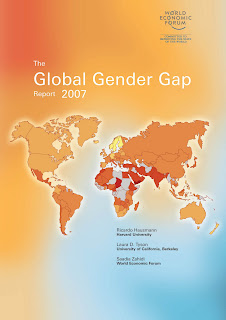
The delegation comprised Mr. Mehmood Nawaz Shah, General Secretary of the Sindh Abadgar Board, and Mr. Ghulam Sarwar, a progressive Horticulture farmer from Sindh.

Mr. Nawaz said approximately 1.7 million mangoes are produced in Pakistan of which less than 5 per cent are exported at some of the lowest prices in the world. He said there was a need to add value to mangoes in the areas where they are grown in Pakistan.
“That is one of the prime reasons for our turning to CSF,’’ he said, adding: “We need the help of CSF in establishing a value added mango processing facility in Tando Allah Yar in Sindh.’’
Within the framework of the existing MOU signed with the Government of Sindh, the Competitiveness Support Fund is launching a new initiative jointly with the Sindh Government to help the mango, dates and bananas industry segments to upgrade their physical infrastructure for better processing of the said products.
 The initiative is planned to be a public private partnership so that the beneficiaries take ownership, said Arthur Bayhan, Chief Executive Officer of the Competitiveness Support Fund. Mr. Bayhan expressed appreciation on working closely working with Mr. Nazar Hussain Mahar, Additional Chief Secretary Planning and Development, Government of Sindh.
The initiative is planned to be a public private partnership so that the beneficiaries take ownership, said Arthur Bayhan, Chief Executive Officer of the Competitiveness Support Fund. Mr. Bayhan expressed appreciation on working closely working with Mr. Nazar Hussain Mahar, Additional Chief Secretary Planning and Development, Government of Sindh.During his recent visit to Karachi, Mr. Bayhan also met with the Chief Minister of Sindh, Mr. Qaim Ali Shah and discussed further cooperation with the new government.
Pakistan currently exports an estimated $170 million horticultural produce which CSF aims to increase to $1 billion by 2012 through its support to the Task Force on Horticulture Finance and Competitiveness.
Only 16 per cent of fruits are processed in Pakistan and this can be enhanced exponentially as there are great opportunities to augment the volume of value added products using modern technology. The potential markets for Pakistani exporters have been identified in Europe and the Middle East.
Currently there are an estimated 6,638 tons of fruit is processed in Pakistan with Citrus topping the list with 1,944 tons, followed by mangoes with 1,675 tons, dates with 622 tons and banana with 158 tons. These are located in all four provinces with 4,197 tons produced in Punjab, 983 in Balochistan, 945 in Sindh and 513 in NWFP.
 CSF is a joint initiative of the United States Agency for International Development (USAID) and the Ministry of Finance, Government of Pakistan and has been established to reposition economy on a more global footing. The Fund is based on international best practices and has been tailored to the current Pakistani economic environment.
CSF is a joint initiative of the United States Agency for International Development (USAID) and the Ministry of Finance, Government of Pakistan and has been established to reposition economy on a more global footing. The Fund is based on international best practices and has been tailored to the current Pakistani economic environment.CSF supports Pakistan’s goal of a more competitive economy by providing input into policy decisions, working to improve regulatory and administrative frameworks and enhancing public-private partnerships within the country.
Support for CSF is part of the $1.5 billion aid that the U.S. Government is providing, through USAID, to Pakistan over five years to improve economic growth, education, health, governance and for earthquake reconstruction.





















 The Competitiveness Support Fund is the country partner institute of the World Economic Forum. CSF is a joint initiative of the United States Agency for International Development (USAID) and Ministry of Finance, Government of Pakistan.
The Competitiveness Support Fund is the country partner institute of the World Economic Forum. CSF is a joint initiative of the United States Agency for International Development (USAID) and Ministry of Finance, Government of Pakistan.

















